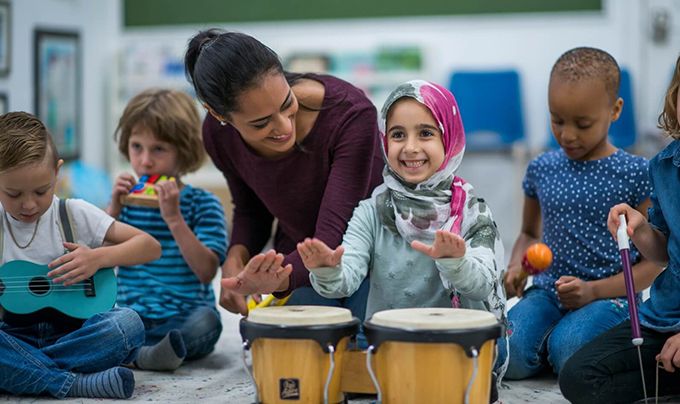
Music has been connected to several things over the years, so it is no surprise to see it thrive even in the education field. While some people may argue that music is not as important as other core subjects taught in schools, some others would say the opposite, as music has been proven beneficial so far for students. There are several studies to show how effective this is, including this research article from 2019 that highlights the effects of music learning on cognitive development in children.
There are also platforms available today due to improved technology that makes it easier to teach music in schools today. One such platform is the MP3Shack website and with more sites like this, students can have easy access to music anytime and anywhere.
Some of the benefits of music education for students include:
1. Improved Test Scores
Students with experience in music performance tend to have higher test scores compared to students who do not engage in music. Learning a musical instrument stimulates your brain and helps improve your cognitive skills and the same applies when you commit to learning music generally. It is easier for children, as their brains tend to easily pick these things up faster than an adult brain would. So, if there’s any time to incorporate music into schools, it should start from a tender age and this will have huge effects on their test scores.
2. Listening and Language Skills
Constantly listening to music will help improve your listening skills, especially if you listen to pick up lyrics or beats, which is part of what’s involved in music education. Also, children who grew up listening to music and have familiarized themselves with it tend to develop strong music-related connections, which improves their language development skills. Musical training trains the left side of your brain to process language, especially when it involves learning a musical instrument.
3. Math Skills
Music can aid in math learning, as children get to learn about tonality through music lessons, which will help them understand mathematical sequences better. Also, while learning about rhythm, they can learn how to count. All these expose them to some math tactics such that when they eventually have to tackle some math challenges, it won’t be as difficult as it would have been without the music lessons.
4. Creativity
Implementing music into education for students is a great way to infuse creativity into them. Let there be some level of diversity apart from the usual subjects that are constantly being taught. Music tends to open children up to newer opportunities and possibilities that the world has to offer. It’s also a great way to take a break from usual school routines.
Conclusion
The best time to get all the benefits of music is from childhood, which is why it is encouraged to introduce music education in schools as much as possible. Children have enough capacity in their brains to accommodate newer things and learn as much as they can. Music can stimulate their brains and make them smarter than the average person who’s not exposed to music education.
